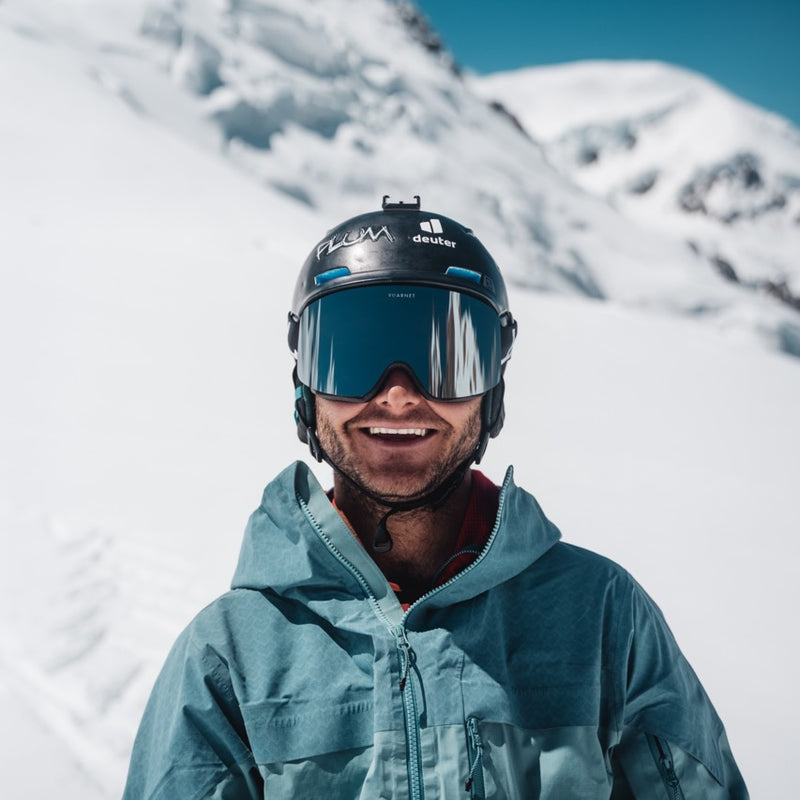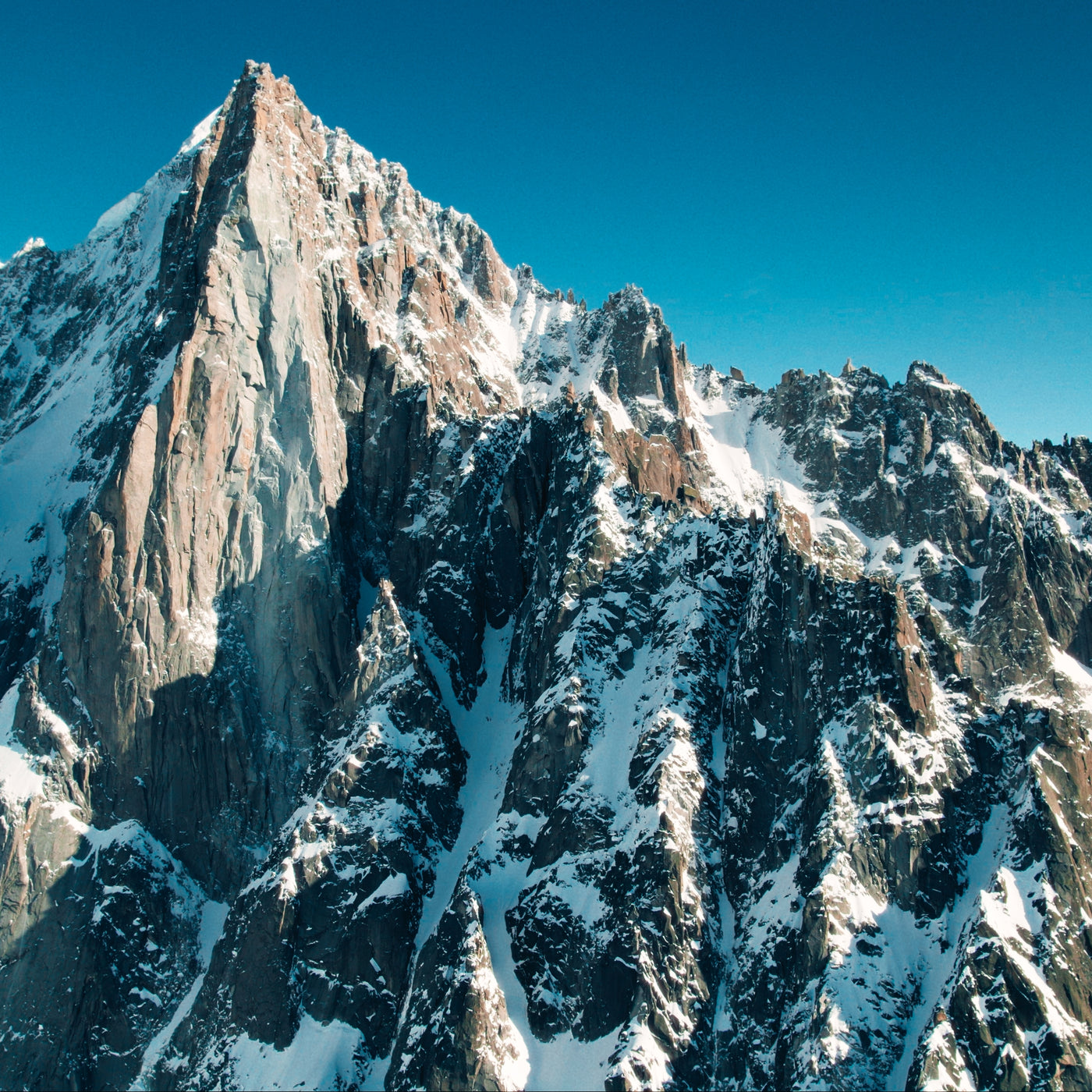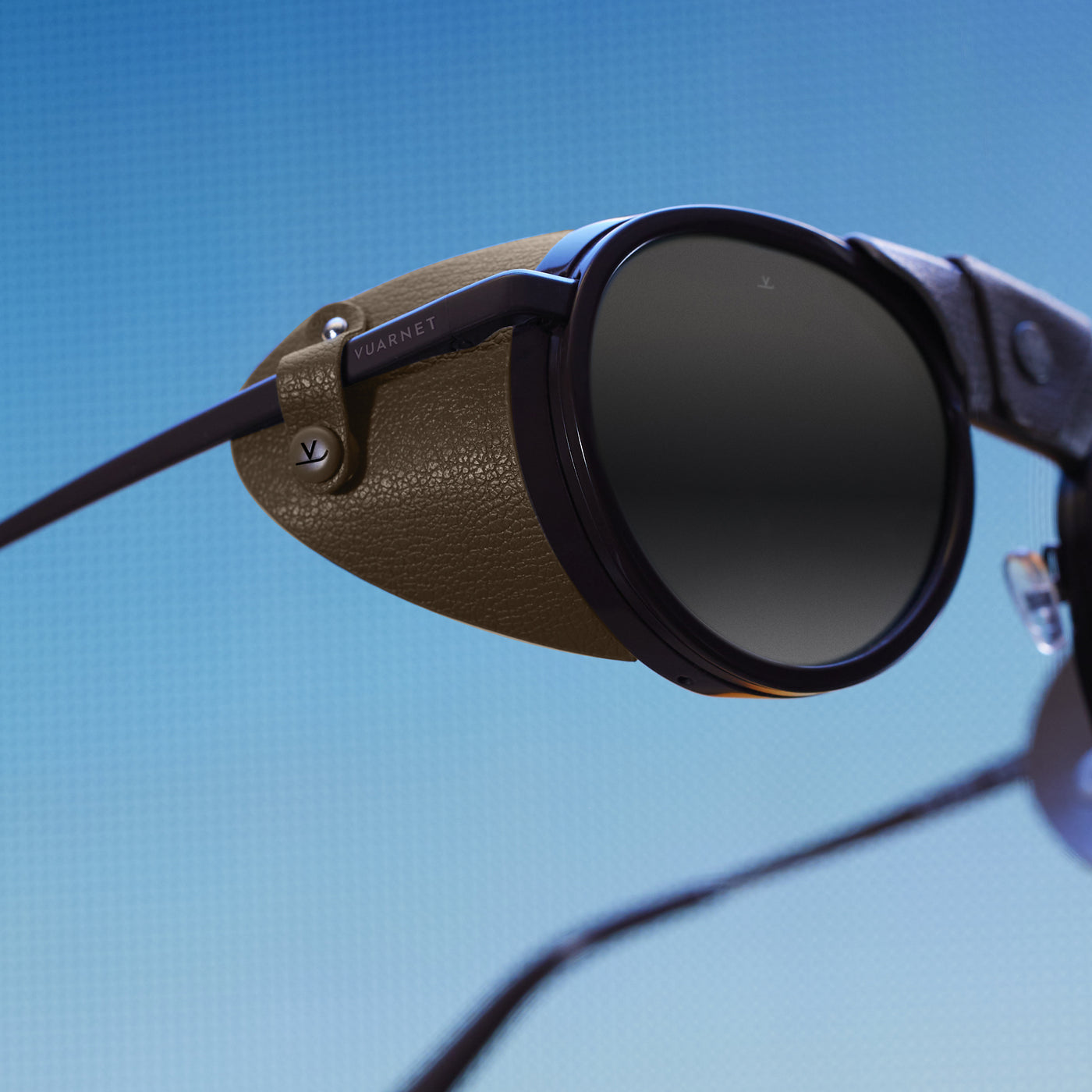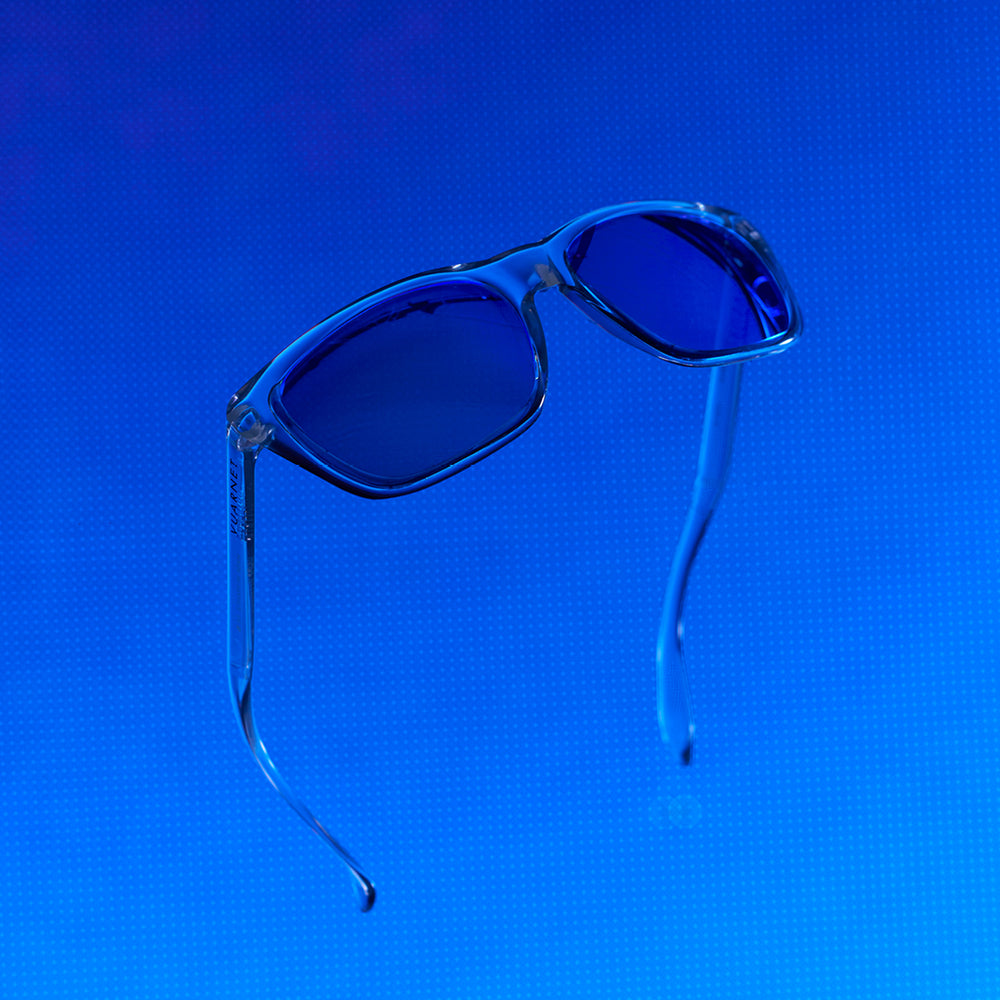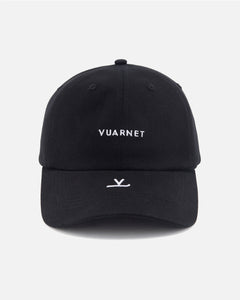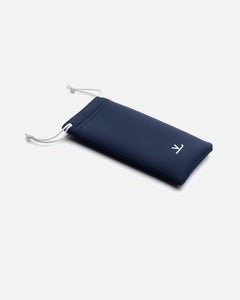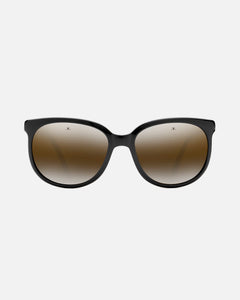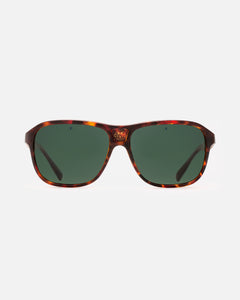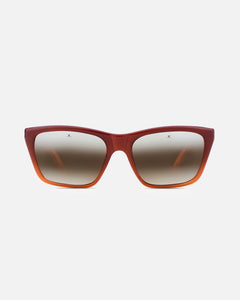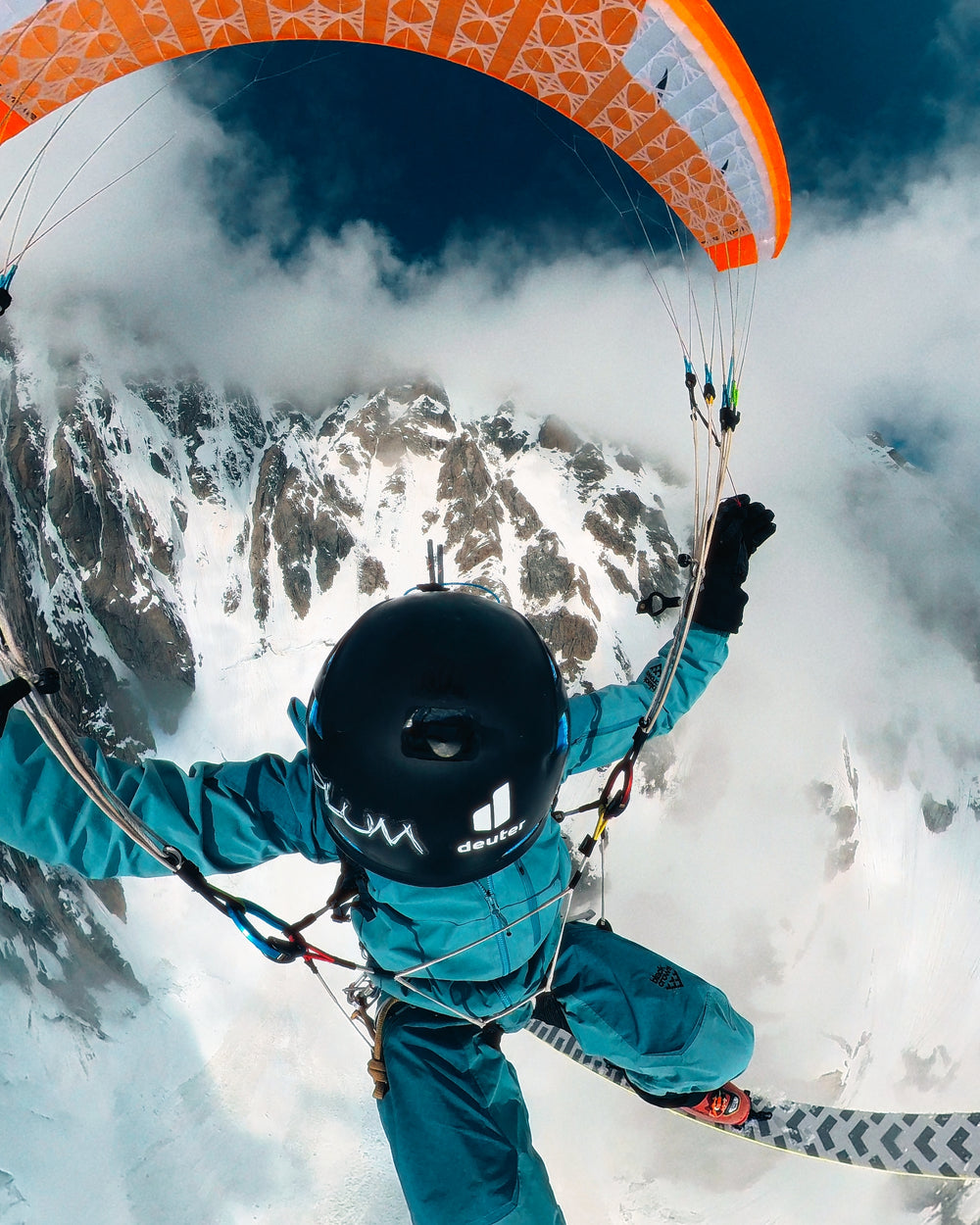
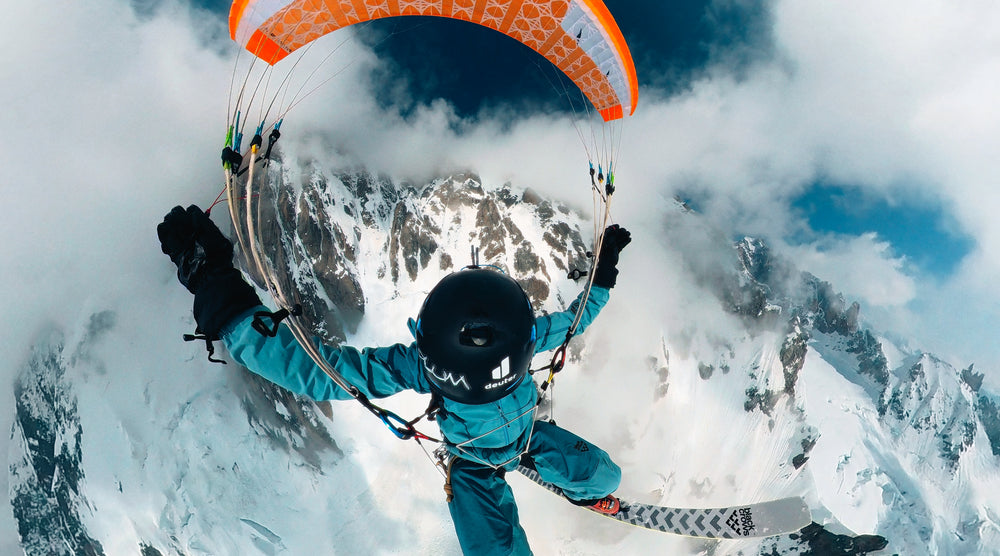
Why did you decide to make this film? What does it represent for both of you?
Mathis: Jules is my cousin and he has always been a solid skier, ever since he was little. I have evolved my career in image production and I wanted to showcase his abilities by making a short biopic. In addition to sharing beautiful moments up there, it helped me progress in capturing images in the high mountains. I also think it allowed Jules to put words to his passion and showcase what drives him to push his limits up there, on slopes exposed to over 50°.
Jules: Basically, it's Mathis' idea. After doing a similar project with a paraglider, he wanted to make a biopic of a skier. Since we're cousins he contacted me to do it together. I just brought the skiing that I love to do and how I see it. For me, this film is a family project, without taking things too seriously, with moments in the mountains that brought us closer together.
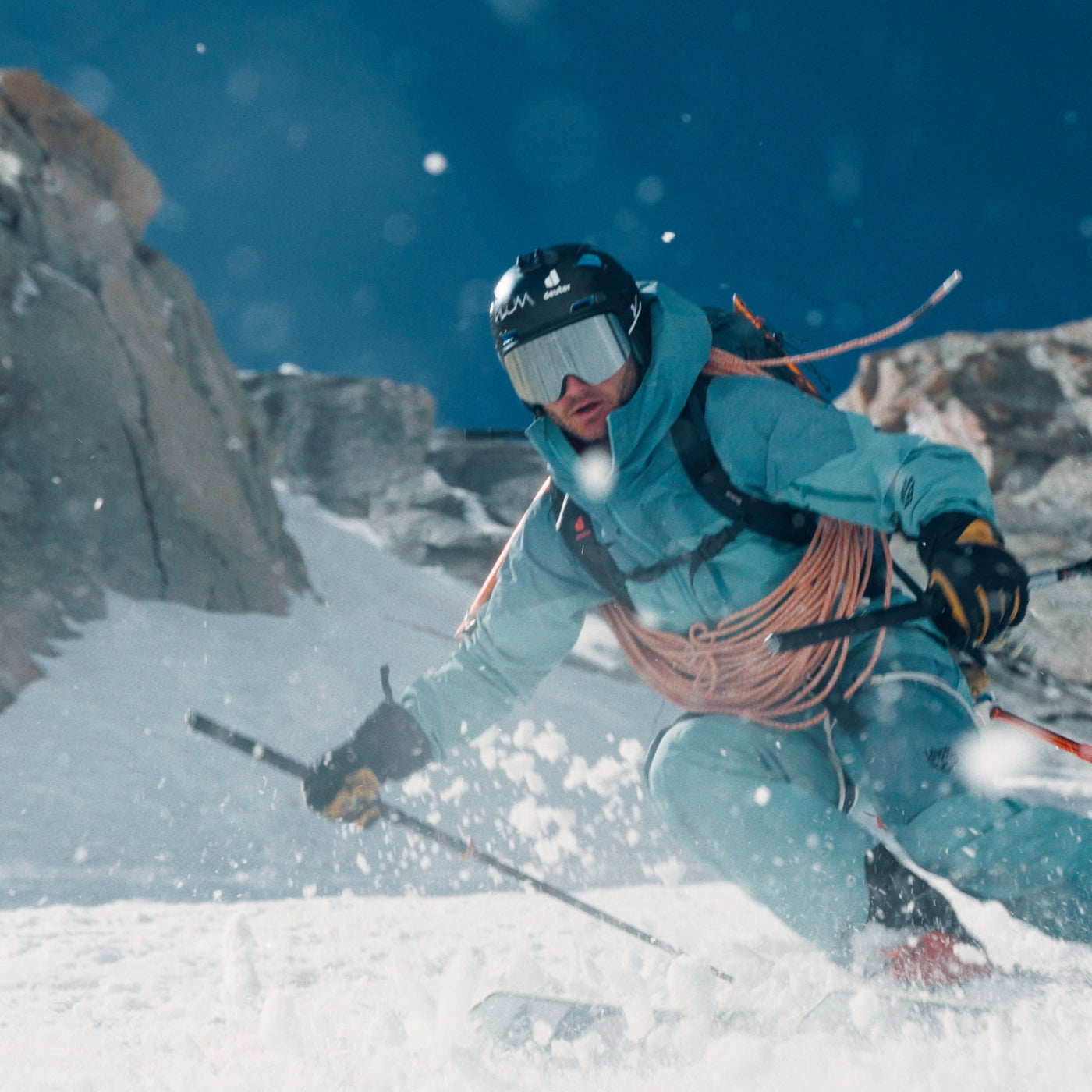
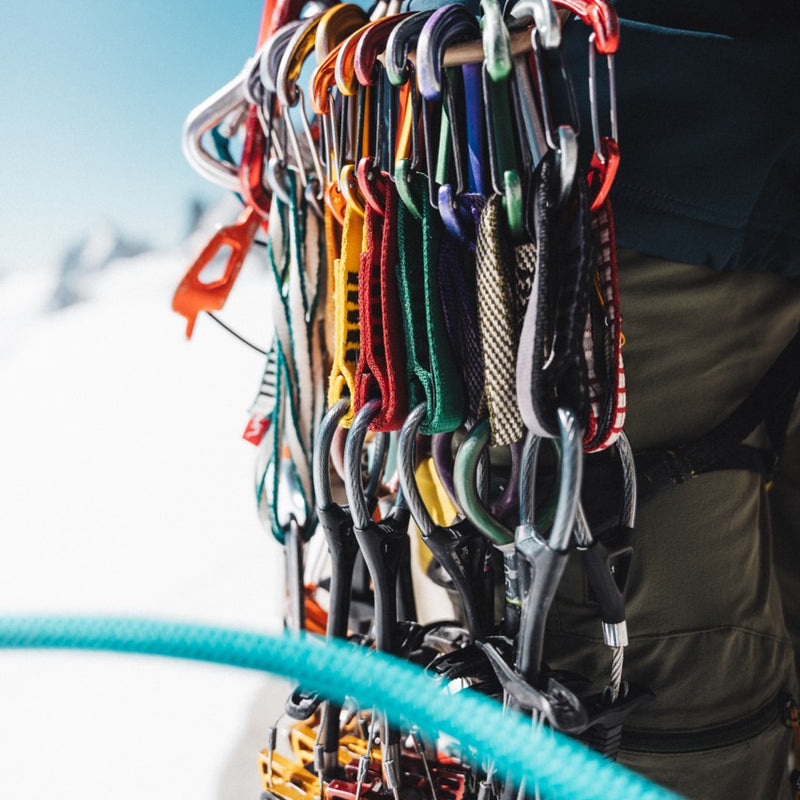
Mathis, could you introduce yourself and tell us about your profession?
Mathis: I am a director and photographer specializing in mountain sports. In other words, I enjoy walking, running, and skiing in the mountains with a camera in hand. Three years ago I graduated as an engineer, but I continued to pursue my passion for imagery and sports, and turned it into a profession. I have always dreamed of being a high-level athlete, of having sponsors, and today, I have transitioned to the other side of the camera. I collaborate with athletes and major outdoor brands to capture their stories.
Jules, could you explain why you focus on skiing/freeriding?
Jules: For a long time I frequented ski slopes and race gates. When I stopped competing I really wanted to move on to something else so I started freeriding at home (Flaine). One day my father took me to Chamonix, to the Argentiere basin. He showed me what the high mountains and steep slopes were like. Since that day, I can say that I have truly found what inspires me the most: the vast mountains, at more or less high altitudes, the verticality, and the sense of gravity that such descents can provide, as well as the discovery of new remote massifs.
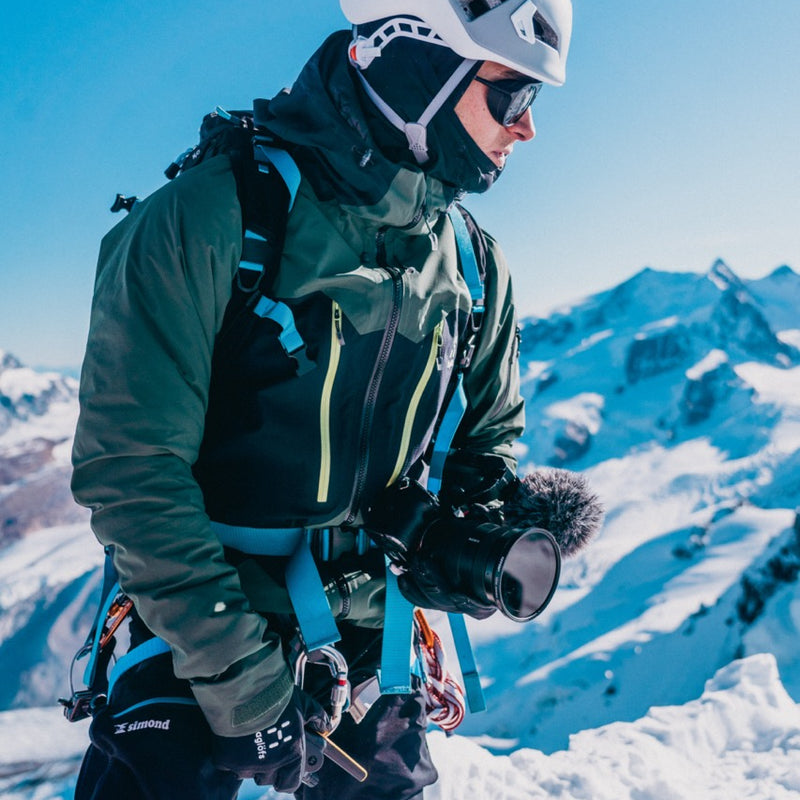
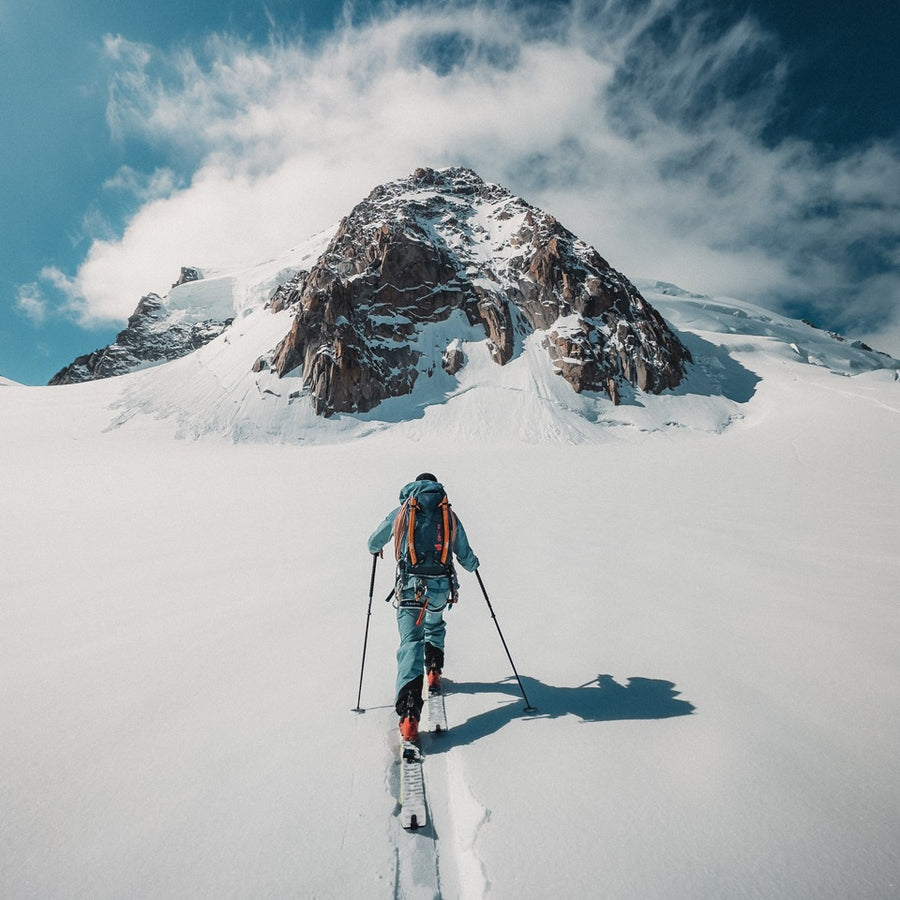
How do you choose your expedition partners and what makes an effective team?
Mathis: These individuals are as comfortable as I am in this environment, or even more so in the case of athletes. They are also people I can trust and know we can support each other in case of an incident. It's also essential to get along well with them; it makes the journey more exhilarating and creates beautiful memories.
Jules: My expedition partners are people who share the same motivation as me to start, whether it's for a descent or a summit, and who more or less share the same vision. Most of the time they are friends, buddies with whom you laugh and enjoy spending time. If you meet most of these criteria, I believe it makes an effective team.
How do you manage risks in the high mountains? What are your safety priorities?
Mathis: In the high mountains, risks are omnipresent, and even if we are comfortable and have analyzed the conditions well, there is always an element of randomness and instinct. When I'm capturing images up there, I try to keep a margin and operate at 90% of my capacity, reserving the remaining 10% in case of an incident, allowing me to focus on my camera or drone. Sometimes, the best images require a certain level of risk-taking, and that's what I find fascinating about this profession. However, safety remains the priority, and sometimes you have to give up to come back down intact.
Jules: We are often in the mountains observing the conditions evolving, so it's mostly about intuition on the terrain. We analyze the different reports and weather forecasts from previous days, and we think, "well, it might be good here, but too charged there, and crusted there." Depending on the periods and orientations, we leave more or less early to avoid rockfalls and avalanche purges, etc. I don't really have safety priorities; it's more of a general aspect where everything is taken into account, weighing the pros and cons and relying on intuition. There are certain days when risk acceptance will be higher than other days, depending on the night you've had, the difficulty of the route, or many other factors.
How do your loved ones cope with you putting yourself in what some would consider dangerous situations?
Mathis: Over time, my loved ones have become familiar with my practice and projects. Obviously, they always have a hint of stress when they see me leave for a few days or even several weeks. I try to stay in touch when the network allows it and to give updates as much as possible. They know that I don't take reckless risks and that once I'm back home, I'll have beautiful images to show them and exciting stories to tell.
Jules: My loved ones know the risks, and they trust me. They ask me to give updates as soon as I can. It's stressful for them, of course, but they know I'm not reckless, and my risks are calculated.
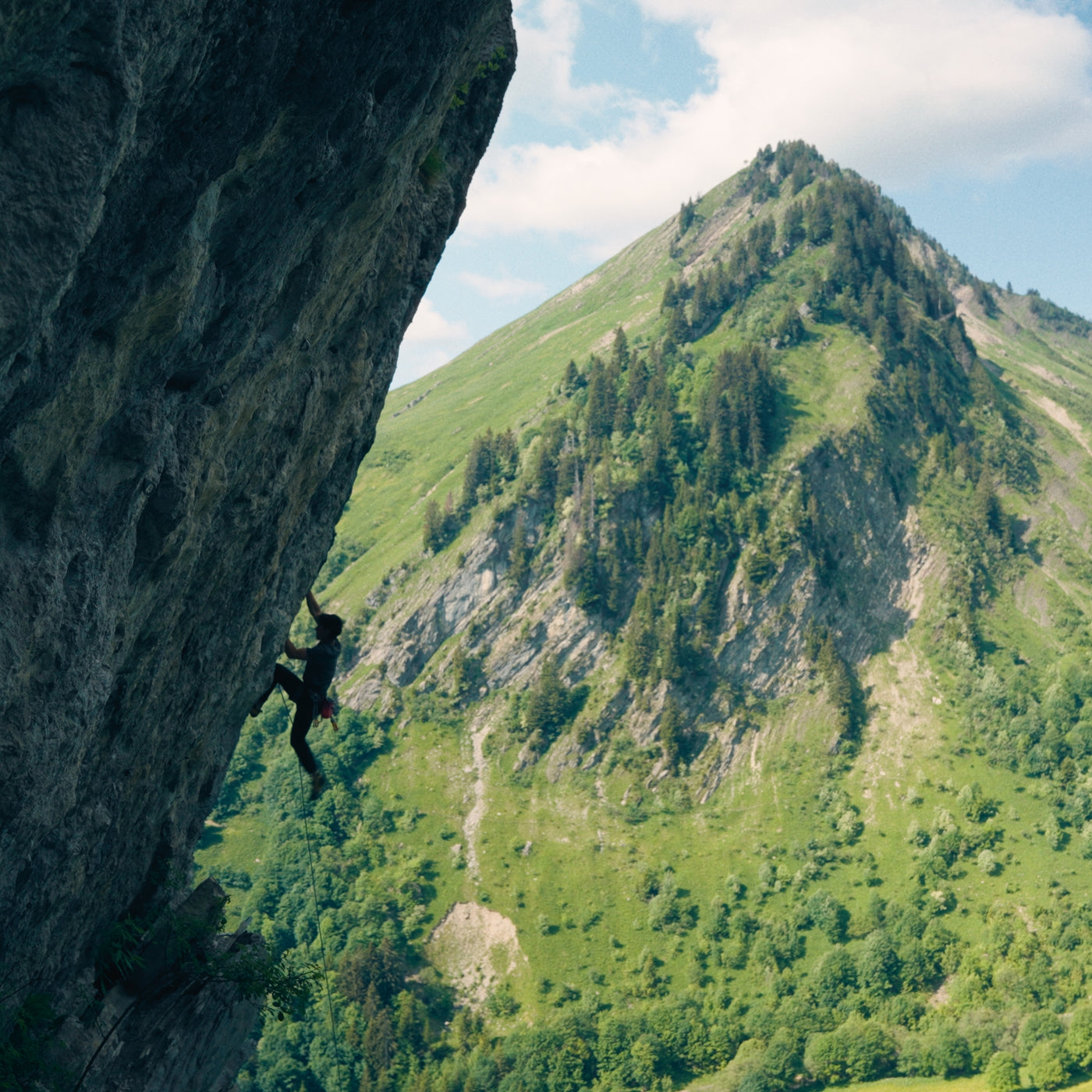
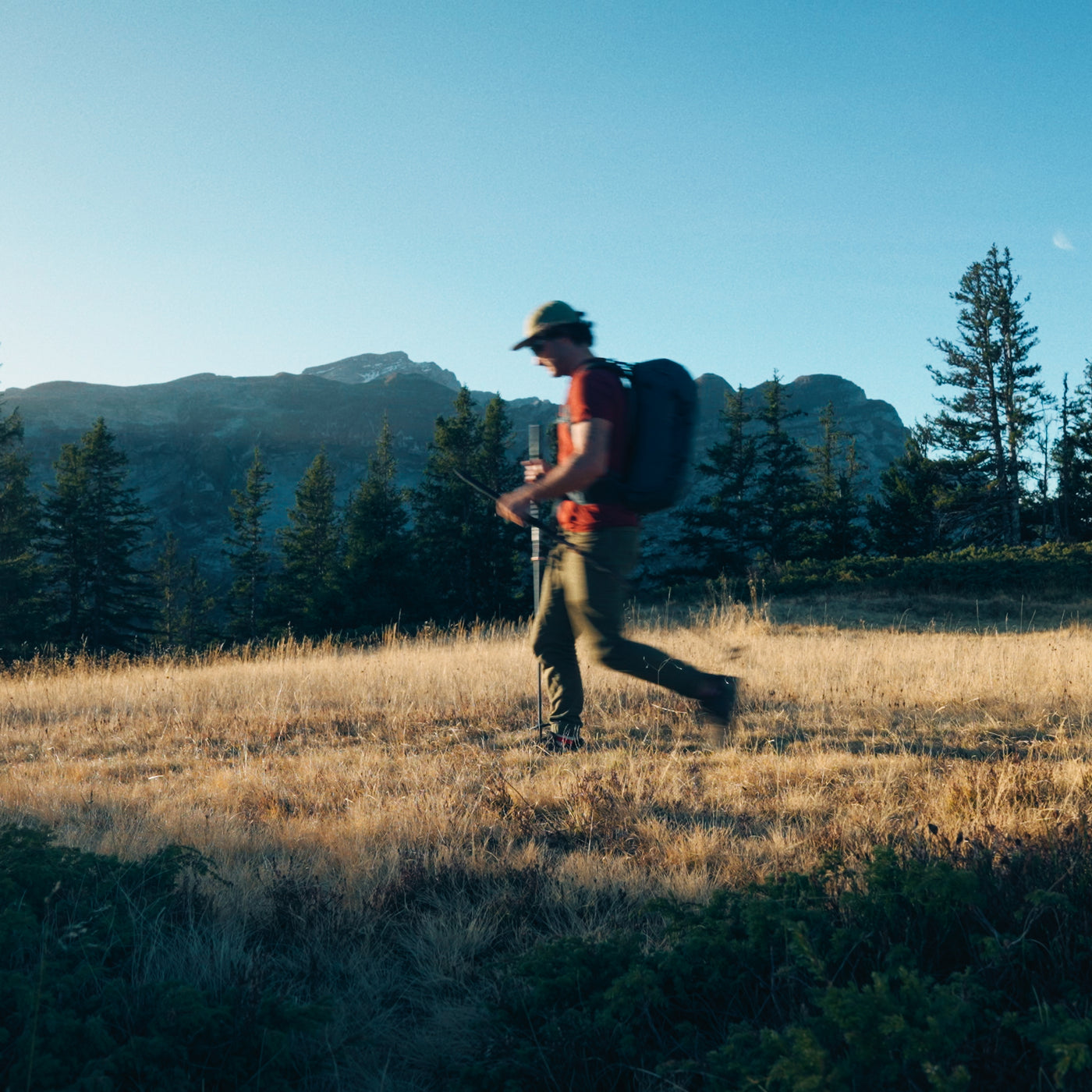
Vous êtes souvent confronté à des situations dangereuses, parfois même à l’étranger. Comment cela affecte-t-il vos proches ?
Mathis : Avec le temps, mes proches sont devenus familiers avec ma pratique et mes projets. Évidemment, ils ont toujours une pointe de stress quand ils me voient partir pour quelques jours voire plusieurs semaines. J’essaie de garder le contact quand le réseau le permet et de donner des nouvelles le plus possible. Ils savent que je ne prends pas de risques inconsidérés et qu’une fois de retour à la maison, j’aurai de belles images à leur montrer et des histoires palpitantes à raconter.
Jules : Mes proches connaissent les risques, et ils me font confiance. Ils me demandent de donner des nouvelles dès que je le peux. C’est sûr que c’est stressant pour eux, mais ils savent que je ne suis pas une tête brûlée et que mes risques sont calculés.
What have Vuarnet ski goggles and sunglasses brought to your outdoor experiences?
Mathis: The brand has always been innovative in the designs it offers. They accompany me in everyday life, whether I'm in the city, in front of my computer, or at the top of a mountain. High mountains are a hostile environment for the body and retina. Vuarnet optics allow me to practice and capture these places without worrying about the impact of light on my vision. I focus on the essentials: enjoying the present moment and capturing it in images.
Jules: In everyday life, and in the high alpine terrain, Vuarnet has provided comfort for my eyes, with goggles and glasses that stay on my face and protect me from all the sun's rays. A French brand with long-standing expertise.
